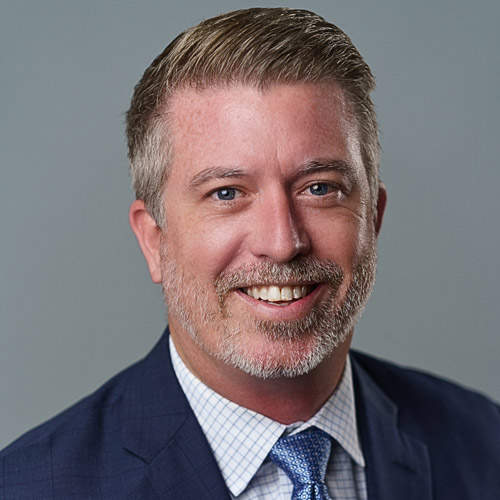AAFP: The Psychologist in Correctional Settings
Presented by: Robin Timme, Psy.D., ABPP
 This on-demand professional training program on AAFP: The Psychologist in Correctional Settings is presented by Robin Timme, PsyD, ABPP in partnership with the American Academy of Forensic Psychology (AAFP).
This on-demand professional training program on AAFP: The Psychologist in Correctional Settings is presented by Robin Timme, PsyD, ABPP in partnership with the American Academy of Forensic Psychology (AAFP).
The U.S. has the highest incarceration rate among independent democracies, with mass incarceration disproportionately affecting BIPOC communities and creating significant public health concerns. Incarcerated individuals experience drastically higher rates of HIV, Hepatitis C, substance use disorders, and serious mental illness. The phenomenon of transinstitutionalization has shifted people with serious mental illness from hospitals to jails, complicating mental health care in correctional settings.
Psychologists play critical roles in providing screening, assessment, crisis intervention, and treatment within these complex environments. Courts have affirmed the constitutional right to adequate care, driving improvements in correctional mental health services. More recently, attention has turned to upstream diversion efforts, reentry support, and the broader criminal legal system, as described in the Sequential Intercept Model.
Psychologists are also increasingly involved in addressing the mental health crisis among correctional officers, who face high rates of PTSD, distress, and suicide. Broader reform efforts, spurred by the COVID pandemic and opioid crisis, have expanded access to treatments like MAT and MOUD and prompted Medicaid policy changes to support reentry care.
Overall, correctional psychology offers vital, clinically rich opportunities to serve marginalized populations and shape systems at the intersection of public health and public safety.
Upon completion of this training, participants will be able to:
Key topics covered in this training include:
Who is incarcerated today?
Rates of medical and behavioral health conditions in jails and prisons
Prevalence of serious mental illness, suicide, and extreme states
Case studies of individuals evaluated in jails and prisons
Systemic factors leading to health disparities in jails and prisons
Using Sequential Intercept Model to demonstrate relationship between systems
Social determinants of health as predictors of incarceration
Protective and Adverse Childhood Experiences (PACES)
Clinical opportunities for mental health professionals
Screening, assessment, triage, crisis stabilization, treatment planning, psychotherapy, interdisciplinary consultation
Examples of cases within jails and prisons
Emerging opportunities across settings of public health and public safety
Intersection between clinical and forensic roles (i.e., competency)
Using clinical-forensic functions to inform decision-making
Focus on the wellness of those who work inside jails and prisons
Advocacy and policy implications
Unique ethical considerations working inside jails and prisons
Cases present as uniquely challenging – case studies
The concept of dual loyalty and the influence of the institution on the clinician

We are proud to partner with the American Academy of Forensic Psychology (AAFP) for this training. AAFP is a non-profit organization of board-certified forensic psychologists whose mission is to contribute to the development and maintenance of forensic psychology as a specialized field of study, research, and practice. The Academy does this by providing high-quality continuing education workshops, providing a forum for the exchange of scientific information among its members, and conferring awards upon outstanding students and practitioners in the field of forensic psychology.
Palo Alto University, Continuing & Professional Studies (CONCEPT) is approved by, recognized by, or maintains sponsorship provider status with the following boards and agencies. We maintain responsibility for all content in our CE/CPD programs. For more information, visit here.
American Psychological Association (APA): Approved sponsor of continuing education for psychologists.
Association of Social Work Boards (ASWB): Approved continuing education provider (ACE program, Provider #1480), 11/22/2023–11/22/2026.
Canadian Psychological Association (CPA): Approved to sponsor continuing education for psychologists.
National Board for Certified Counselors (NBCC): Approved Continuing Education Provider (ACEP No. 7190).
Palo Alto University, Continuing and Professional Studies (CONCEPT) is approved by the American Psychological Association to sponsor continuing education for psychologists. Palo Alto University, Continuing and Professional Studies (CONCEPT) maintains responsibility for this program and its content. Palo Alto University, Continuing and Professional Studies (CONCEPT), is approved by the Canadian Psychological Association to offer continuing education for psychologists. Palo Alto University, Continuing and Professional Studies (CONCEPT), SW CPE is recognized by the New York State Education Department’s State Board for Social Work as an approved provider of continuing education for licensed social workers #SW-0356 and the New York State Education Department’s State Board for Mental Health Practitioners as an approved provider of continuing education for licensed mental health counselors. #MHC-0073. Palo Alto University, Continuing and Professional Studies (CONCEPT) has been approved by NBCC as an Approved Continuing Education Provider, ACEP No. 6811. Programs that do not qualify for NBCC credit are clearly identified. CONCEPT Professional Training, #1480, is approved to offer social work continuing education by the Association of Social Work Boards (ASWB) Approved Continuing Education (ACE) program. Organizations, not individual courses, are approved as ACE providers. State and provincial regulatory boards have the final authority to determine whether an individual course may be accepted for continuing education credit. CONCEPT Professional Training maintains responsibility for this course. ACE provider approval period: 11/22/23-11/22/26. Social workers completing this course receive (clinical or social work ethics) continuing education credits.